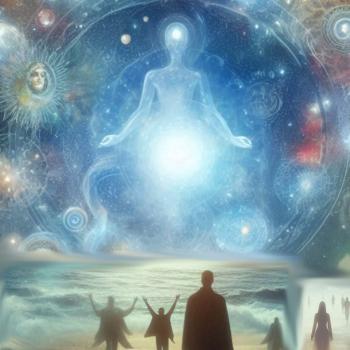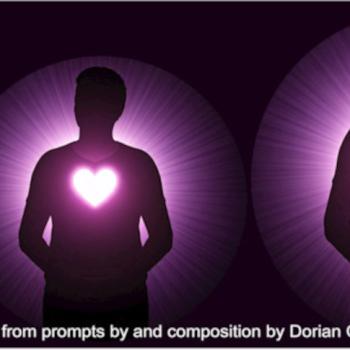Practical Spirituality series
We recently took another trip to see how things had changed in places where we used to live. Over the years we’ve observed places we fondly remember dissolve into the land like they were never there.
Jesus had a horrible going home experience. The people heard him speak, thought of him as the young Jesus they knew, couldn’t believe he was something new, and tried to throw him off a cliff.
“And He said, “Truly I say to you, no prophet is welcome in his hometown.” Luke 4:24
I’m not a prophet, so I don’t have to worry about people throwing me off a cliff like the hometown residents tried to do to Jesus. But they may find other reasons. Just talk to my wife.

Who changed? Was it the people or Jesus? In today’s world, it would most likely be both the geography and the person returning. It might be the people because as they age they become staid in their attitudes.
If we think we don’t change, just look at images of actors and musicians as New Adults (20s) compared to the way they look today in their 50s. Of course, I look the same. Well, at least I still have hair. It’s as unwieldy as Einstein’s, untamable, but at least it’s there. (I’m now using hair oil again to get it glued in place.)
We change
None of us are who we used to be. We may have some of the same characteristics, but we’ve grown. I still emphasize creativity and communication, as I did in high school. The university couldn’t put an end to that.
I’m hardly the same person I was in high school. I never expected to have such a diverse range of achievements: being in radio, making movies, being a pastor, doing graphics work, designing circuits, working in psychology, building houses, having a growing ministry, and creating training courses. In my youth my inner child was about writing stories and listening to rock music.
When people talk about their inner child, I see that as regression. We’re intended to grow. Perhaps just spiritual growth is for many because not everyone is suited for or desires multiple professions. I admire those people who stay in the same community and same jobs—my friend Roger, who was in radio with me, did that for his lifetime. Either way, we progress in our spiritual journey.
Am I known in my home towns? Nope. In grade school, I delivered papers all over town. The walk stretched for five miles. I knew most people on sight, but today, no one would recognize me on sight, and only a few would even remember me. My last class reunion I felt appreciated by some and resented by others.
Three towns I really liked
In my earliest days, I lived at Lake DaleCarlia, Indiana, on the island. In the winter I walked across the frozen lake, climb a frozen concrete stairs at Likens place, and walk to the school bus stop a mile away. In school, the teacher would have to call my name three times before I mentally returned to class. That hasn’t changed much. During the summer season, the island provided a lot of fun.
Williamsport, Indiana was the most fun for me, even though the residents there probably don’t think so. I lived there in second grade. In winter we would sled down the delightfully long Sweeny Hill. At the end was a fence that viciously snagged those unable to brake and steer.
On summer evenings, we went to the portable skating rink or walked past the library and Devil’s Canyon to the theater. None of that is still there, and it’s impossible to find where my grandmother’s house was on Third Street. Most of the homes I remember in that area were gone fifty years ago. One rural home we lived in had a beautiful pasture with trees that bordered a creek. It’s my relaxing mental home, but decades ago, it all disappeared and became a barren drainage ditch. But it’s still fixed in my memory.
My dad purchased a small farm. Although it required extensive effort, I acquired independence, creativity, and self-sufficiency. I still enjoy living in rural areas. The house is gone but the current owners have made the land and pond beautiful. A Don Henley song says, Don’t look back … those days are gone.
Area number three
We loved the university town we lived in for thirteen years. It was a place where I pursued higher education, expanded our family, and made many important choices. It was where I became a pastor and counselor.
After forty years, we went back to look at it. Two homes were gone and our other homes seemed much smaller. The university had grown. The old haunts were gone.
More importantly, we had changed. The important choices we made took us in very different directions from where we were. We became very different people.
As an example of how education changes you, I remember one person in HR at a place where I worked. She had a toy figure on her desk and a comfortable attitude. She left to upgrade her skills in college. When she returned, the figure was gone and she was very “professional.” We change from our experiences. I liked the “comfortable” better and try to be that myself.
Moving on
My experiences made me a different person. Today, as I continue and expand my ministry to New Adults, my visit to that college town made me both nostalgic and very aware that I have moved on. Although I get more education every day, I can’t go back to that simpler time or that way of life, or even the things I used to do. They are important parts of me, but like a machine with many moving parts, my total effort produces a different output than any single gear inside.
I sometimes wonder what it would have been like if we had stayed in that rural area of my childhood, early marriage years, or college town. They had their advantages. But I know I wouldn’t have been content. My life is about growing into new things to help others.
Conclusion
Jesus found that people in his hometown didn’t recognize his new ministry. Some people may have felt jealous because they weren’t chosen like him and were bored stiff with very mundane lives. For some, he didn’t embody their idea of success. Most couldn’t stand the idea of change that he represented. To them he was a radical and their reaction to their hometown boy was to throw him off a cliff. No matter how much he loved those people, he couldn’t go back.
One of my friends in high school, Jeanie, in this tiny, remote area went to work for a publishing house in New York City. At the time I was a little jealous. Now I’m not because I have my place.
Our lives take us in very different, and often unexpected, directions. We become who we are meant to be, who we can be, and what we strive to be. God plants the desires of our heart and fulfills those desires, if we keep our mind on what is good. It’s often a serpentine path, but if we pursue it, it’s rewarding.
(See Proverbs 16:9, Romans 8:28, Matthew 6:21, The Transformation of Our Heart’s Desires.)
Who Will You Be in 10 Years? Not Who You Expect. Our mindset determines whether we can change. Growth versus fixed mindset.
Probability Space
Who would you be if you let yourself think about it? Are you pursuing that path? Are you taking advantage of opportunities that come up on that serpentine path?
Potential Space
If you think creatively and allow your mind to wander and explore, what new experiences and opportunities would you be open to in your life? Keeping the door closed means growth is limited.
- Dorian
Our answer is God. God’s answer is us. Together we make the world better.














